Rafah crossing to Egypt reopens, with the first foreign passport holders and wounded finally beginning to leave Gaza
Foreign passport holders and injured Palestinians stuck in Gaza have begun leaving the war-torn area as the Rafah border crossing into Egypt reopened for the first time since Hamas’ bloody attacks on October 7.
Photos show relieved families streaming out of the border gates, which have remained firmly closed to anyone entering the besieged strip amid brutal Israeli airstrikes that Hamas says have killed more than 8,500 people.
Convoys of desperately needed aid have passed between Egypt and Gaza, which the UN has described as “a drop in an ocean of need” – but so far no people have been allowed through the Rafah crossing.
British nationals are among those who have flocked to Gaza’s southern border in recent weeks, in the desperate hope that they would be among the lucky few to enter Egypt.
Lines began forming at the terminal early this morning and some 545 foreigners and dual nationals, along with about 90 sick and injured people, were expected to leave.
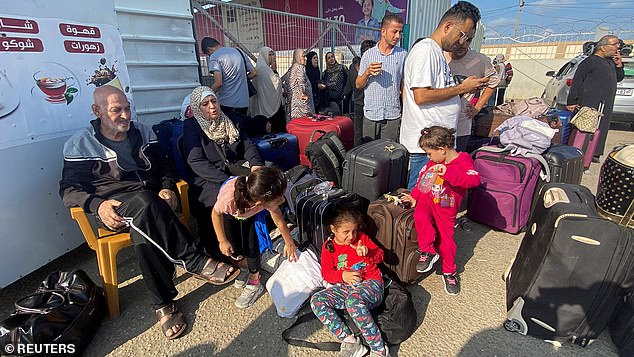
Palestinians with dual nationality wait outside the Rafah border crossing with Egypt
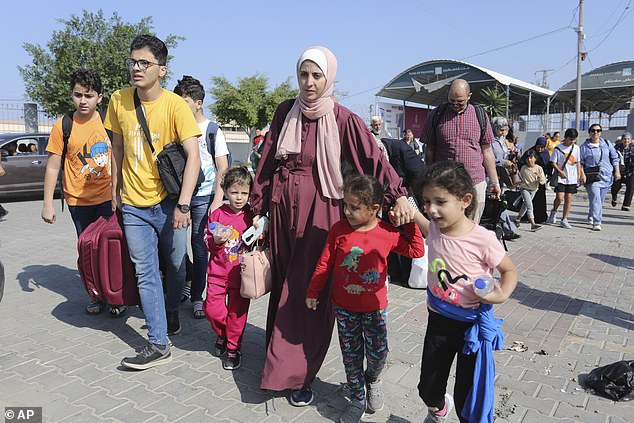
Relieved Palestinians cross to the Egyptian side of the Gaza Strip border crossing
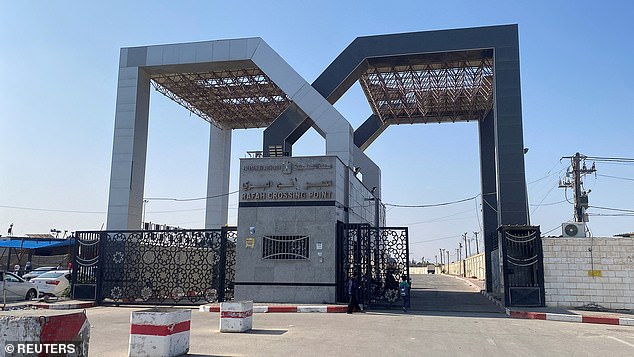
The Rafah border crossing with Egypt. The gates have remained firmly closed to anyone entering the besieged strip
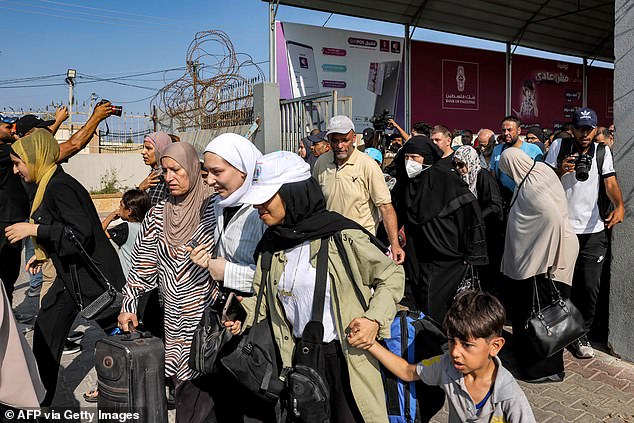
Women smile as they leave the Gaza Strip, which has been under heavy Israeli bombardment for three weeks
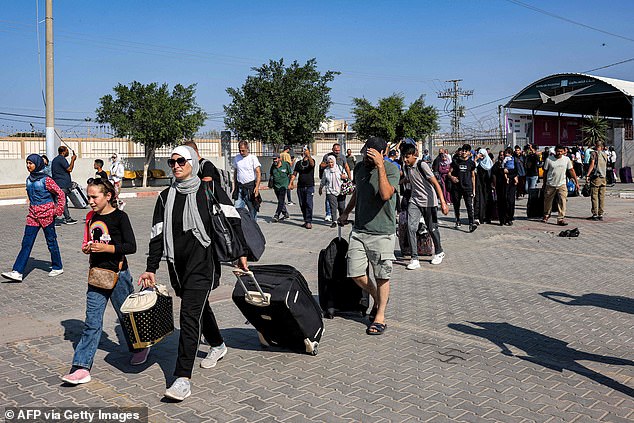
The Gaza Borders and Crossings Authority previously published the names of more than 500 foreigners and dual nationals whom it called on to travel to Rafah to leave the Strip.
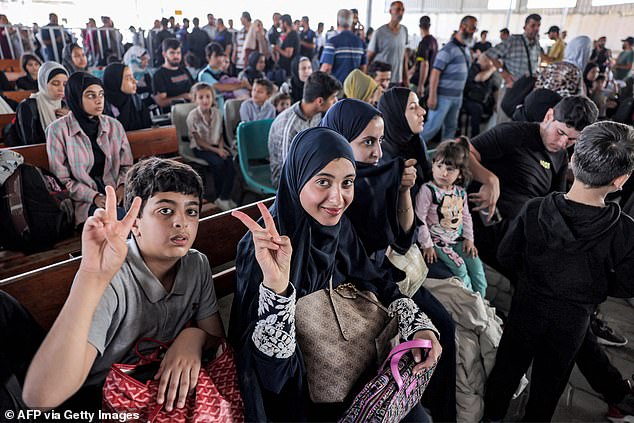
After being allowed into the terminal area, huge queues formed around the crossing booths for checks on passports and other documents
After being allowed into the terminal area, huge queues formed around the crossing booths for checks on passports and other documents.
Ambulances waited on the Egyptian side to take away the wounded and sick.
It is believed that the evacuations were secured as part of an agreement, brokered by Qatar, between Israel, Hamas and Egypt in coordination with the US.
The Gaza Borders and Crossings Authority previously published the names of more than 500 foreigners and dual nationals whom it called on to travel to Rafah to leave the Strip.
The area around the terminal was hit during Israeli air strikes. Photos show razed buildings in Rafah, despite Israel urging people to move south for their safety.
More than 15,000 people injured in Israeli retaliatory attacks include some of those taken to Egyptian hospitals for treatment.
The Hamas-led Health Ministry says the brutal bombardment has killed more than 8,500 people, two-thirds of them women and children.
Israel launched the bombardment of Gaza after Hamas’ invasion on October 7, killing 1,400, mostly civilians. Another 240 people were taken hostage.
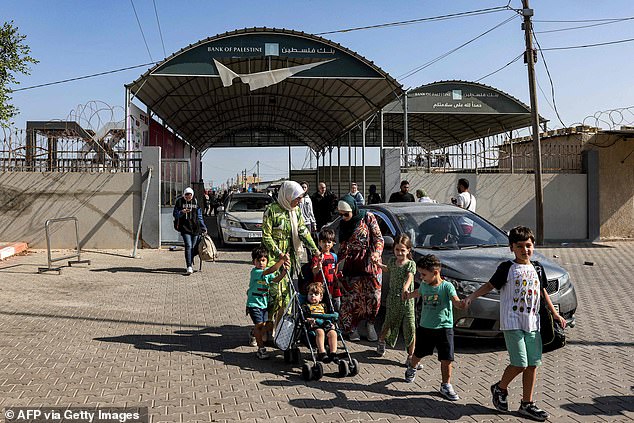
Children evacuate through the Gaza border with their mothers as they flee for safety
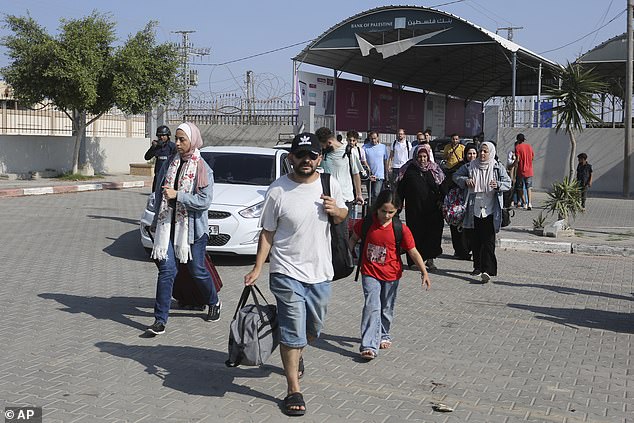
Palestinians with only a few possessions cross the Egyptian side of the border with the Gaza Strip
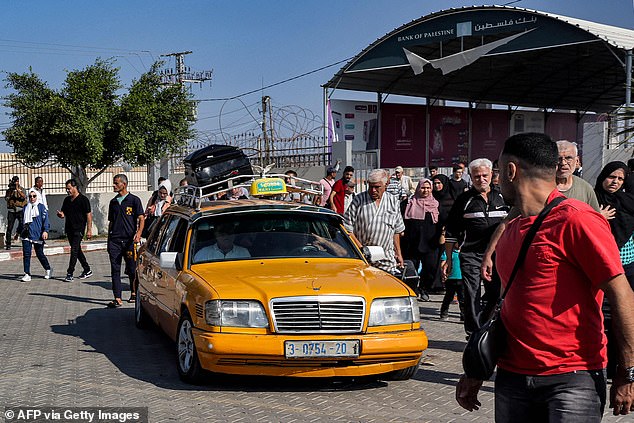
People and cars enter the Rafah border crossing in the southern Gaza Strip before entering Egypt
In a post on X this morning, British Foreign Secretary James Cleverly said: ‘The Rafah crossing is likely to open to a first group of foreigners today.
‘British teams are ready to assist British nationals as soon as they are able to leave.
“It is crucial that life-saving humanitarian aid can enter Gaza as quickly as possible.”
Zaynab Wandawi, an English teacher from Salford, Greater Manchester, is among those stuck in Gaza after traveling there with her husband earlier this month.
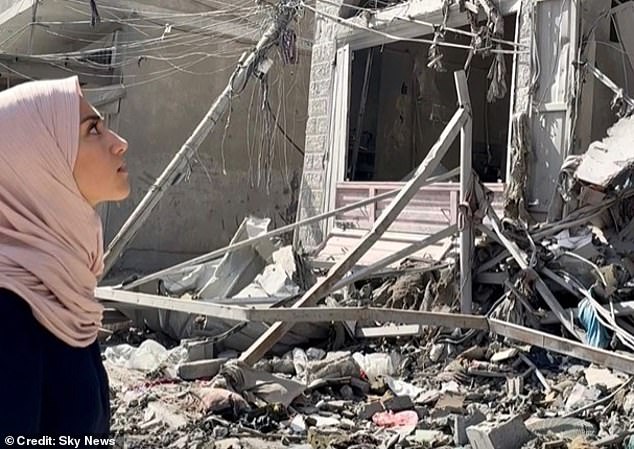
Zaynab, 29, said their trip was “relatively normal” for a few days before the war broke out, but now they are stuck in a war zone
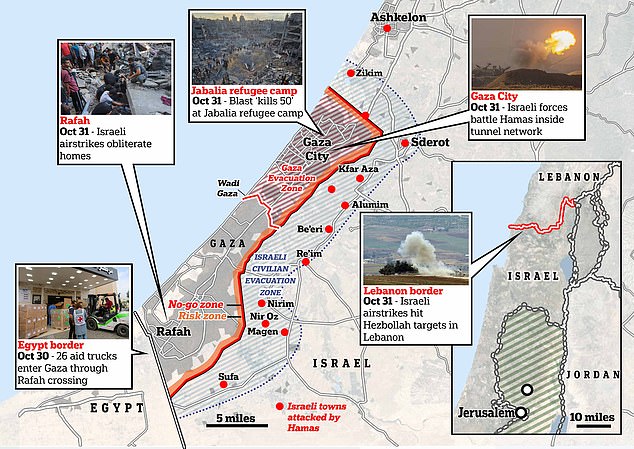
She described her despair when she reached the border earlier this week, telling a Foreign, Commonwealth and Development Office official she feared they would not make it.
“The longer we are here, the more likely we are not to reach the Rafah border,” Zaynab told them.
“I honestly don’t think they know how much our lives are in danger.”
Yesterday, a refugee camp in northern Gaza was bombed by the Israeli army, killing at least 50 people, according to the Hamas-led health authority.
Israel Defense Forces (IDF) spokesman Rear Admiral Daniel Hagari said Israeli fighter jets carried out the attack, which he said killed a senior Hamas commander and collapsed the terror group’s underground infrastructure.
The IDF said that “numerous Hamas terrorists were hit during the attack.”
Jabalia is the largest of the besieged enclave’s eight refugee camps and is densely populated: according to the United Nations, it has registered 116,000 refugees and residents are forced to live in cramped, substandard conditions.
